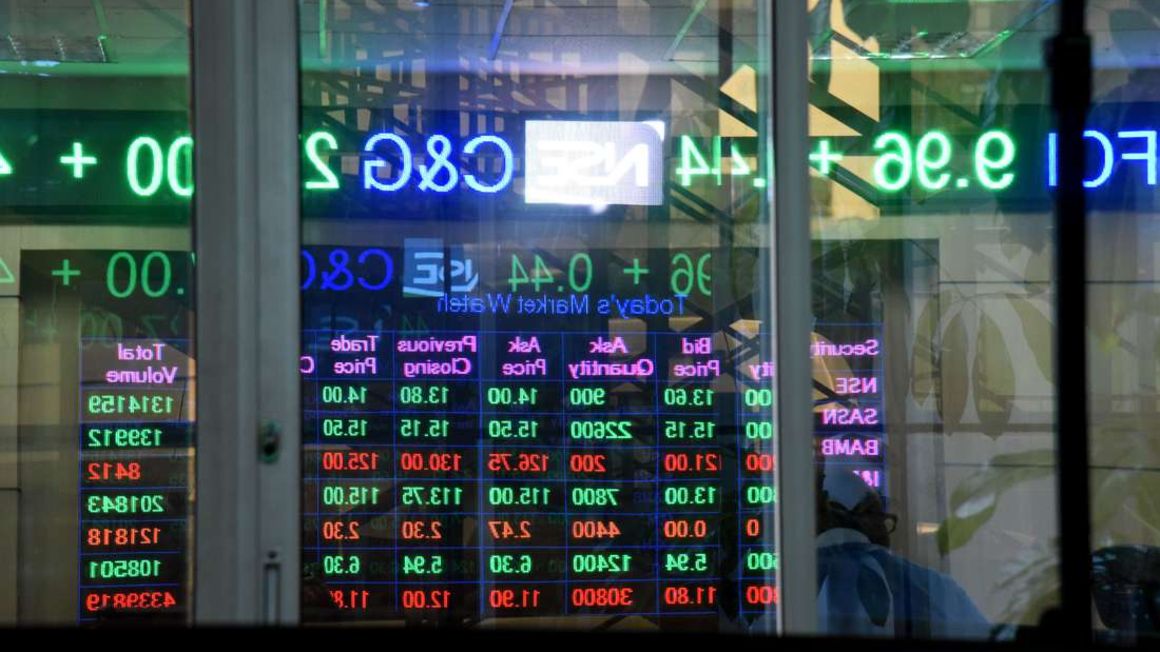
NSE trading floor. FILE PHOTO | NMG
Summary
- A record number of profit warnings by commercial banks has left their shareholders at risk of missing dividends worth over Sh33 billion after the lenders were forced to cut or suspend the payments to conserve cash in the wake of the Covid-19 crisis.
- An unprecedented six of the 11 Nairobi Securities Exchange (NSE)-listed banks have warned that their profits will fall by more than a quarter—painting a bleak dividends outlook.
- The freeze on dividend payouts will see investors miss about Sh33 billion, going by the 2019 payouts or Sh40.47 billion that was paid in the previous year.
A record number of profit warnings by commercial banks has left their shareholders at risk of missing dividends worth over Sh33 billion after the lenders were forced to cut or suspend the payments to conserve cash in the wake of the Covid-19 crisis.
An unprecedented six of the 11 Nairobi Securities Exchange (NSE)-listed banks have warned that their profits will fall by more than a quarter—painting a bleak dividends outlook.
“It is unlikely that you issue a profit warning and then pay a dividend because what you are trying to do is to ensure that you retain cash in the business to keep going in the challenging circumstances,” ICEA-Lion Asset Management chief executive Einstein Kihanda said.
The freeze on dividend payouts will see investors miss about Sh33 billion, going by the 2019 payouts or Sh40.47 billion that was paid in the previous year.
Most of the lenders, including Standard Chartered Bank Kenya, Absa Kenya, Cooperative Bank of Kenya, DTB, I&M Holdings and NCBA, have all issued profit warnings.
KCB, Equity, Cooperative Bank, Absa, Stanbic, DTB, Standard Chartered Bank of Kenya, NCBA and I&M saw a combined 29.2 percent or 23.36 billion decline in profitability in the nine months to September.
In terms of falls in net profit, Absa took the heaviest hit (65.4 percent), followed by NCBA (45.3 percent), KCB (43.2 percent), Stanchart (30.41 percent) and Stanbic (30.1 percent).
Several chief executives now say they will give priority to cash-preservation as they seek strong capital buffers in line with a Central Bank of Kenya (CBK) circular issued last August.
KCB Group already skipped the Sh1 per share interim dividend or an equivalent of Sh3.21 billion, amid a 43.1 percent fall in nine month earnings, and says it will require CBK clearance in case it settles on any final payout.
“Our priority is to preserve our cash resources as we look at the options for supporting customers during the crisis,” said KCB Group CEO Joshua Oigara in an interview after releasing the nine-month results.
“We have no concern at our cash level but we are looking at CBK guidance and we will consult them before end of March.”
A dividend freeze by KCB will deny investors Sh11.24 billion, going by the previous payout by the country’s most profitable bank.
Equity Group, which last year declared Sh9.4billion dividend but later suspended it on cash preservation claims, maintained that any such payouts for this year would depend on counsel by the CBK.
“I will take the advice of the regulator whether I will be allowed to pay any dividend or not. CBK has given us the tool kit for capital stress testing and we have just started the process,” Equity Group CEO James Mwangi said in an interview.
“We don’t know what level CBK may want to set capital buffers given the uncertainty. It will be imprudent for me to second guess them.”
KCB is expected to finalise a Sh4.37 billion ($40 million) deal to acquire two banks in Tanzania and Rwanda by June while Equity last August paid $95 million (Sh10.37 billion) to acquire a bank in DRC in what looks to reduce cash available for dividends.
For HF Group, chances of any dividend payout looks remote given that its nine-month net loss widened 8.6 times to Sh730.2 million and it is also in search of fresh capital.
Profit fall and dividend freeze will mark a rare cycle for Kenya’s banking sector which has been enjoying growth despite previous disruptions such as the interest rate cap in 2016.
The CBK has had to issue a circular asking all banks to revise their capital levels to reflect the prevailing economic hardships before making any dividend payment decision.
“The duration and extent of the pandemic remains uncertain and it is critical that these institutions remain resilient by strengthening their balance sheets through additional capital and adequate liquidity,” said the CBK in mid-August.
Banks have had to raise provisions for loan defaults in the wake of Covid-19-induced economic difficulties facing borrowers.
Equity, KCB, Stanchart, DTB and Absa raised their loan loss provisions by 686 percent, 243 percent, 274 percent, 232 percent and 147 percent respectively.
Loan loss provisions by Co-op Bank and Stanbic rose 89 percent and 75 percent respectively during the review period.
The increased provisioning came in the period in which the sector’s ratio of non-performing loans rose from March’s 12.5 percent to 13.6 percent in October— the highest since August 2007.
Banks had between March and October last year restructured loans worth Sh1.38 trillion or 46.5 percent of the total loan book due to the coronavirus-induced economic hardships that have hurt borrowers’ ability to repay.





No comments :
Post a Comment